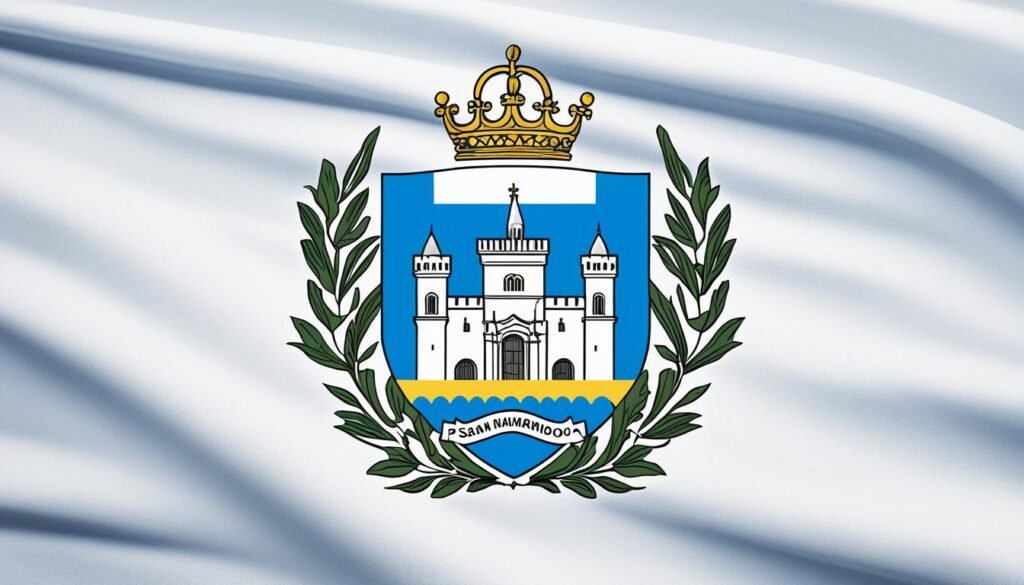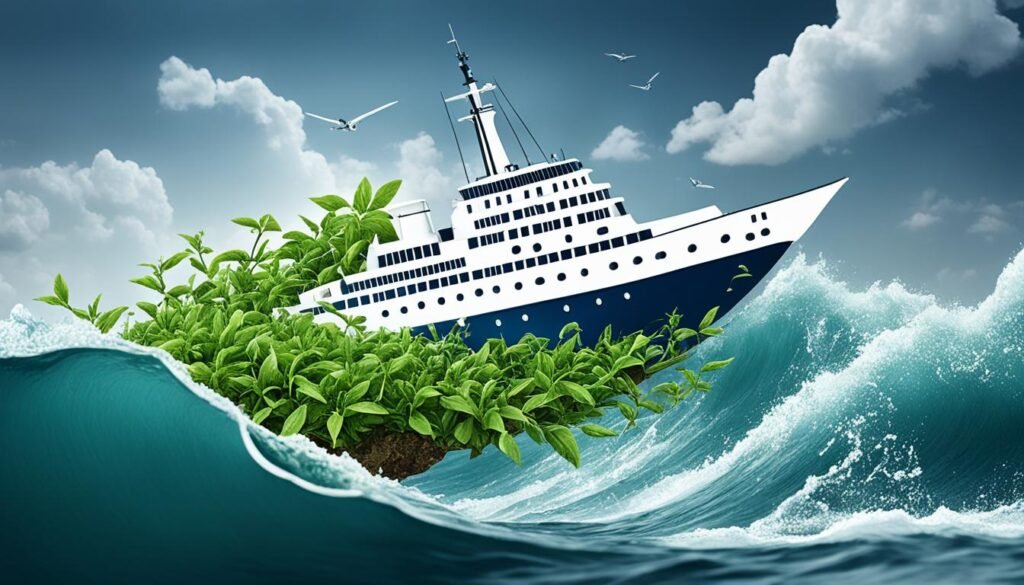Did you know that San Marino, the world’s smallest republic, has a population of just around 30,000 people? Yet, this diminutive microstate boasts its own courts, national flags, anthems, healthcare systems, and government institutions. The survival and governance of such a unique political entity often baffles even the most seasoned observers. This article delves into the fascinating realm of microstate governance, exploring the challenges and opportunities that San Marino faces in maintaining its distinct identity and parliamentary system.
Key Takeaways
- San Marino, with a population of about 30,000, is one of the world’s most well-known microstates.
- As a microstate, San Marino has its own distinct political, social, and economic institutions, despite its small size.
- The article examines the unique challenges and opportunities of governing a microstate, particularly in maintaining its identity and parliamentary system.
- The study of San Marino’s governance provides insights into the complexities of microstate politics and the role of national identity in shaping political structures.
- The article explores San Marino’s relations with the European Union and the impact of tourism on its economic development.
Introduction to San Marino
San Marino is a captivating microstate located in Southern Europe, completely surrounded by the Italian peninsula. As one of the smallest independent states in the world, with a population of around 30,000 people, this remarkable country boasts a rich history dating back to the 4th century AD.
San Marino’s Geographic and Political Context
Nestled in the Apennine Mountains, San Marino’s geography is defined by its rugged terrain and picturesque landscapes. Despite its diminutive size, the country’s political system is a constitutional democracy, with the Council of Captains Regent and the Grand and General Council serving as the nation’s primary governing bodies.
Historical Overview of San Marino
San Marino’s history can be traced back to the 4th century AD, when it was founded by Saint Marinus, a Christian stonecutter who fled Roman persecution. Over the centuries, this microstate has maintained its independence, becoming known for its unique political structure and deep-rooted national identity.
Defining Microstates and Their Governance
Microstates are sovereign countries with remarkably small populations and territories, often surrounded by larger neighboring states. Despite their diminutive size, microstates like San Marino, Andorra, Liechtenstein, and Monaco have their own unique systems of governance, legal frameworks, and distinct national identities. The study of microstate governance is particularly fascinating, as these nations must carefully balance their political independence and sovereignty with the realities of being closely integrated with more powerful countries or economic unions, such as the European Union.
The governance of microstates presents unique challenges and opportunities. On one hand, these small states must maintain their autonomy and decision-making abilities, while on the other, they must navigate complex relationships with their larger counterparts. This delicate balance is essential for microstates to preserve their sovereignty and national identity, while also reaping the benefits of economic and political integration.

The study of microstate governance provides valuable insights into the intricate dynamics of small-state politics, the role of national identity in policymaking, and the broader implications of globalization and regional integration. As the world continues to evolve, the governance models of microstates offer a unique perspective on the challenges and opportunities faced by small nations in a rapidly changing global landscape.
San Marino’s Constitutional Democracy
San Marino, a small European nation, is renowned for its unique constitutional democracy. At the heart of this system are two distinct governing bodies – the Council of Captains Regent and the Grand and General Council. Together, they form the foundation of San Marino’s parliamentary system, which allows for a close relationship between the elected officials and the citizens.
The Council of Captains Regent
The Council of Captains Regent is a two-person executive, with the Captains Regent sharing the position for a six-month term. While their role is primarily ceremonial, the Captains Regent play a crucial part in San Marino’s governance. They serve as the symbolic heads of state, representing the country both domestically and internationally.
The Grand and General Council
The Grand and General Council is San Marino’s parliament, responsible for passing laws and overseeing the government. As the legislative body, the Council plays a vital role in shaping the country’s policies and ensuring the democratic process. Given San Marino’s small size, this parliamentary system allows for a unique level of citizen engagement and transparency in the decision-making process.
Together, the Council of Captains Regent and the Grand and General Council form the cornerstones of San Marino’s constitutional democracy, preserving the nation’s rich heritage while adapting to the challenges of modern governance.
San Marino: Microstate Governance Studies
San Marino, the world’s smallest republic, has long been a subject of fascination for scholars studying microstate governance. As a unique political entity nestled within the borders of Italy, San Marino’s constitutional democracy and close-knit society offer valuable insights into the challenges and opportunities of governing a microstate.
Researchers in the field of political studies have explored how San Marino’s small size and its deep historical ties to the Italian peninsula have shaped the development of its political institutions and the evolution of Sammarinese national identity. The country’s parliamentary system, with its distinctive Council of Captains Regent and Grand and General Council, provides a compelling case study for understanding the nuances of microstate governance.

San Marino’s position as a microstate has allowed scholars to examine the intricate balance between national sovereignty and regional integration. The country’s unique relationship with the European Union, marked by cooperation agreements and ongoing negotiations, further highlights the complexities of microstate governance on the global stage.
By delving into the political and social fabric of San Marino, researchers in the field of microstate governance studies have uncovered valuable lessons about the resilience and adaptability of small states in the face of modern challenges. As a case study, San Marino’s story continues to captivate and inform our understanding of the diverse pathways to effective microstate governance.
The Role of National Identity in San Marino’s Governance
San Marino, the world’s oldest republic, is renowned for its strong sense of national identity, which is deeply rooted in its history and political institutions. The Sammarinese people take great pride in their country’s unique status and have long held a distinct cultural and political identity that sets them apart from their larger neighbors.
Historical Roots of Sammarinese Identity
The origins of Sammarinese identity can be traced back to the country’s founding legend, which tells the story of Saint Marinus, a Christian stonemason who fled persecution and established a small community on the slopes of Mount Titano in the 4th century AD. This mythical narrative, combined with San Marino’s status as one of the oldest continuously existing republics, has instilled a deep sense of history and tradition among the Sammarinese people.
Contemporary Manifestations of National Identity
Today, Sammarinese national identity is reflected in the country’s political and social institutions. The requirement for long-term residency to acquire citizenship, for example, serves to preserve the Sammarinese population’s homogeneity and the integrity of its political processes. Additionally, the Catholic Church continues to play a significant role in shaping social and political issues within San Marino, further reinforcing the country’s distinct cultural identity.
However, as San Marino navigates its relationship with the European Union and confronts the challenges of globalization, the country’s national identity is evolving. The Sammarinese are grappling with how to preserve their unique political and cultural heritage while adapting to the changing realities of the 21st century.
Challenges and Opportunities for Microstate Governance
Governing a microstate like San Marino presents both challenges and opportunities. The small size and limited resources of microstates can make it difficult to maintain political and economic independence, as they may face pressure from larger neighboring countries or economic blocs like the European Union. The influence of the Catholic Church and conservative political parties can also pose challenges to social and political change in these small states.
However, the close relationship between citizens and the government in microstates can also be an advantage. This allows for more direct citizen participation and a responsiveness to local needs, which can be crucial for preserving the unique national identities of these small states. Microstates must carefully balance these competing factors to ensure their political autonomy and continued relevance on the global stage.

One of the key challenges for microstate governance is the need to adapt to changing global dynamics while maintaining a strong sense of political independence. As small states, microstates must navigate complex relationships with larger nations and economic blocs, often facing pressure to conform to their agendas. This can be particularly challenging when it comes to issues of national sovereignty and the preservation of cultural traditions.
Despite these challenges, microstates like San Marino also have unique opportunities. Their small size and close-knit communities can foster a heightened sense of civic engagement, allowing citizens to have a more direct influence on the political process. This can lead to innovative governance models that are responsive to the specific needs and concerns of the local population, setting an example for larger nations to follow.
San Marino’s Relations with the European Union
As a microstate, San Marino has a complex and intricate relationship with the European Union. Though not a member of the EU, San Marino has maintained a Customs Union and Cooperation Agreement with the bloc, which governs its economic and political integration. The country has also been engaged in ongoing negotiations with the EU for an Association Agreement, a move that would further solidify its ties with the EU’s institutions and policies.
These negotiations have required San Marino to carefully balance its desire for political independence and the preservation of its distinct national identity with the realities of its close economic and geographic ties to the EU and its member states, particularly Italy. The Sammarinese government has navigated this delicate relationship through a combination of diplomatic efforts, historical narratives, and strategic political maneuvering.
Cooperation Agreements and Negotiations
San Marino’s cooperation agreements and negotiations with the European Union have been a crucial aspect of its microstate governance. The Customs Union and Cooperation Agreement, in place since 1991, have enabled San Marino to maintain a close economic relationship with the EU, while also preserving a degree of autonomy. The ongoing negotiations for an Association Agreement aim to further define the country’s political and institutional integration with the European Union.
These negotiations have required San Marino to carefully balance its national interests with the realities of its proximity and economic ties to the EU. The Sammarinese government has employed a multifaceted approach, utilizing diplomatic channels, historical narratives, and political strategies to navigate this complex relationship and ensure the preservation of its unique microstate identity.
Tourism and Economic Development in San Marino
As a microstate, San Marino’s economy is heavily reliant on tourism, which accounts for a significant portion of its GDP. The country’s well-preserved medieval architecture, scenic landscapes, and status as one of the world’s oldest republics make it a popular destination for visitors. San Marino has sought to leverage its unique cultural and historical assets to attract tourists, while also diversifying its economy through initiatives like the development of high-tech industries and financial services.
However, San Marino’s small size and limited resources present challenges in terms of economic development and diversification. The microstate must carefully balance its tourism-based economy with efforts to foster sustainable growth and innovation. Despite these constraints, San Marino has made strides in positioning itself as a hub for specialized industries and services, complementing its thriving tourism sector.

One of the key strategies San Marino has employed is the promotion of its historical and cultural heritage. The country’s UNESCO World Heritage-listed old town, medieval castles, and picturesque landscapes draw visitors from around the world, providing a steady stream of revenue for the local economy. San Marino has also sought to diversify its tourism offerings, catering to specialized interests such as high-end shopping, wellness retreats, and outdoor adventures.
Alongside its tourism initiatives, San Marino has made efforts to develop its microstate economy in other sectors, such as financial services, technology, and manufacturing. The country has leveraged its stable political environment, favorable tax regime, and skilled workforce to attract foreign investment and foster the growth of these industries. By diversifying its economic base, San Marino aims to reduce its reliance on tourism and achieve more sustainable long-term growth.
Comparative Analysis with Other Microstates
While San Marino is a unique microstate, it is not the only one in Europe. Countries like Andorra, Liechtenstein, and Monaco share similar characteristics as small, sovereign nations surrounded by larger neighbors. A comparative analysis of the governance models and national identity dynamics in these microstates can provide valuable insights into the unique challenges and opportunities faced by small states in the modern global landscape.
Andorra, Liechtenstein, and Monaco, like San Marino, are known for their strong ties to neighboring countries and the importance of national identity in shaping their political and economic systems. However, each microstate has its own distinct governance model, reflecting the historical and cultural factors that have influenced its development.
Similarities and Differences in Governance Models
For example, Andorra and Liechtenstein both have monarchical systems, with the former being a co-principality and the latter a constitutional monarchy. In contrast, Monaco and San Marino are both parliamentary democracies, with the former being a principality and the latter a republic. These differences in governance structures can lead to varying approaches to decision-making, the distribution of power, and the relationship between the state and its citizens.
Similarly, while all four microstates have close economic and political ties to their larger neighbors, their levels of integration with entities like the European Union vary. Andorra and Monaco, for instance, have established cooperation agreements with the EU, while Liechtenstein and San Marino have unique arrangements that allow them to maintain a degree of autonomy.
By examining the similarities and differences in the governance models and national identity dynamics of these microstates, policymakers and researchers can gain valuable insights into the strategies and policies that enable small states to thrive in a globalized world.
Conclusion
San Marino’s experience as a microstate provides valuable insights into the complexities of governing small, sovereign nations in the modern era. The country’s constitutional democracy, parliamentary system, and the central role of national identity in its political processes offer a unique case study for understanding the challenges and opportunities of microstate governance.
As San Marino navigates its relationship with the European Union and works to preserve its political independence and cultural heritage, its story highlights the delicate balance that microstates must strike between integration and autonomy. The preservation of national identity is a crucial factor in shaping the political and social fabric of these small but resilient states.
Ultimately, San Marino’s journey serves as a compelling example of how microstates can successfully navigate the evolving landscape of international relations and local governance, while upholding the principles of democratic rule and the unique cultural traditions that define their national character.
Source Links
- Microstates and the EU: Identity, Policymaking and the Quest for an Independent Future – https://www.e-ir.info/2023/05/21/microstates-and-the-eu-identity-policymaking-and-the-quest-for-an-independent-future/
- What It’s Like to Run a Tiny Country When You’re 27 – https://www.vice.com/en/article/wjvmgn/microstate-andorra-san-marino-young-politicians-roger-carmona-matteo-ciacci
- Microsoft Word – 19JUNE_LEAP_FINAL_MANUSCRIPT_MAIN TEXT FOR WORDPRESS[26].docx – https://scholarlypublications.universiteitleiden.nl/access/item:3633585/download


